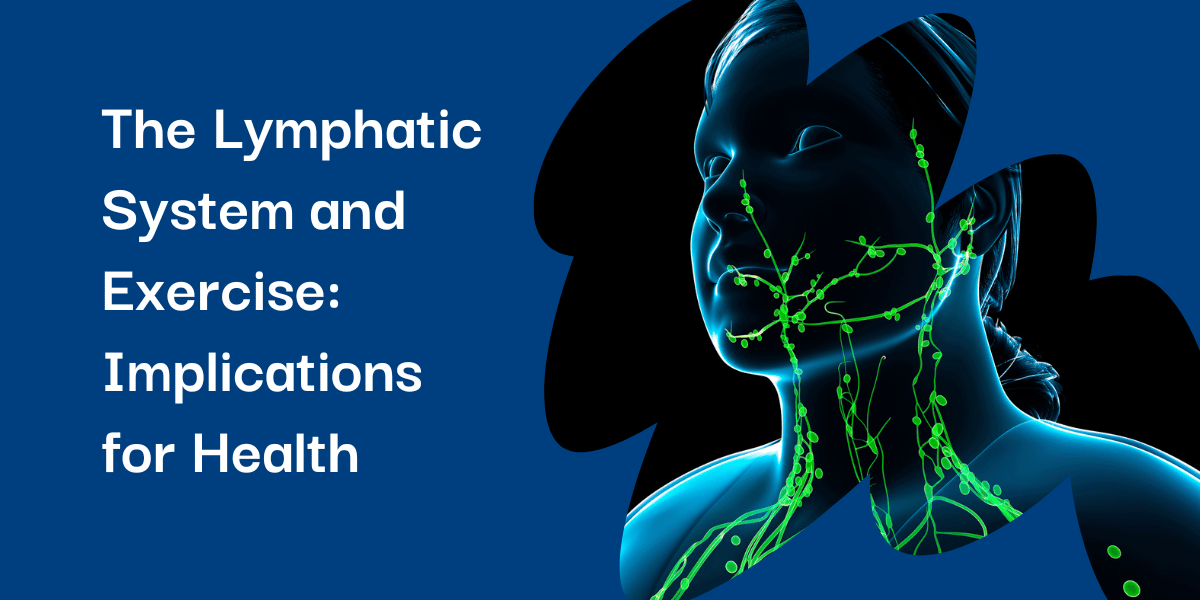The Lymphatic System and Exercise: Implications for Health
Nurturing Health: The Symbiotic Dance Between Exercise and the Lymphatic System
The Lymphatic System and Exercise: Implications for Health
The human body is a marvel of interconnected systems, each playing a unique role in maintaining overall health. Among these, the lymphatic system often takes a backseat in discussions about fitness and well-being. However, understanding the profound impact of exercise on the lymphatic system is crucial for holistic health. In this article, we explore the intricacies of the lymphatic system, its vital role in immune function, and how exercise serves as a powerful catalyst for its optimal functioning.
The Lymphatic System Unveiled
The lymphatic system, comprising lymph nodes, vessels, and organs, acts as the body’s drainage system. Unlike the circulatory system, it lacks a central pump and relies on muscle contractions, breathing, and body movement to propel lymph fluid. This system is a key player in immune response, filtering harmful substances and producing white blood cells that combat infections.
Exercise as a Lymphatic Booster
Regular physical activity is akin to a tonic for the lymphatic system. When we exercise, muscles contract and relax, causing the lymphatic fluid to circulate more efficiently. This increased flow facilitates the removal of toxins, waste products, and excess fluids from tissues, reducing the risk of inflammation and supporting overall immune function.
Implications for Health and Fitness
- Enhanced Immune Function: Exercise boosts the production of lymphocytes and macrophages, enhancing the body’s ability to defend against infections. A robust lymphatic system ensures swift immune responses, reducing the risk of illnesses.
- Reduction in Edema: For individuals dealing with edema (swelling caused by fluid retention), exercise aids in fluid drainage. Engaging in activities like walking or swimming stimulates lymph flow, reducing swelling and promoting better circulation.
- Detoxification: The lymphatic system plays a vital role in detoxifying the body. Regular exercise supports this process by flushing out metabolic waste and harmful substances, promoting a cleaner, healthier body.
- Injury Recovery: After injuries or surgeries, the lymphatic system helps reduce inflammation and aids in the healing process. Gentle exercises prescribed by healthcare professionals can stimulate lymph flow, expediting recovery.
- Emotional Well-being: Exercise has been linked to improved mental health. By enhancing lymphatic circulation, physical activity supports the removal of toxins, contributing to a clearer mind and reduced stress.
Incorporating Lymphatic-Friendly Exercises
While almost any form of physical activity benefits the lymphatic system, certain exercises are particularly effective. Activities like brisk walking, rebounding (jumping on a mini-trampoline), yoga, and swimming encourage lymphatic flow. Incorporating deep breathing exercises and yoga poses that involve twisting motions can further enhance lymphatic circulation.
Conclusion
Understanding the symbiotic relationship between exercise and the lymphatic system is essential for anyone striving for holistic health. Regular physical activity not only strengthens muscles and improves cardiovascular health but also ensures the efficient functioning of the body’s drainage and immune system. By embracing an active lifestyle, individuals empower their lymphatic system, promoting overall well-being and vitality.
Remember, before starting any new exercise regimen, consulting a healthcare professional or fitness expert is advisable to ensure that the chosen activities align with individual health needs and goals. Through mindful exercise, we not only invigorate our bodies but also support the intricate mechanisms that safeguard our health from within.





